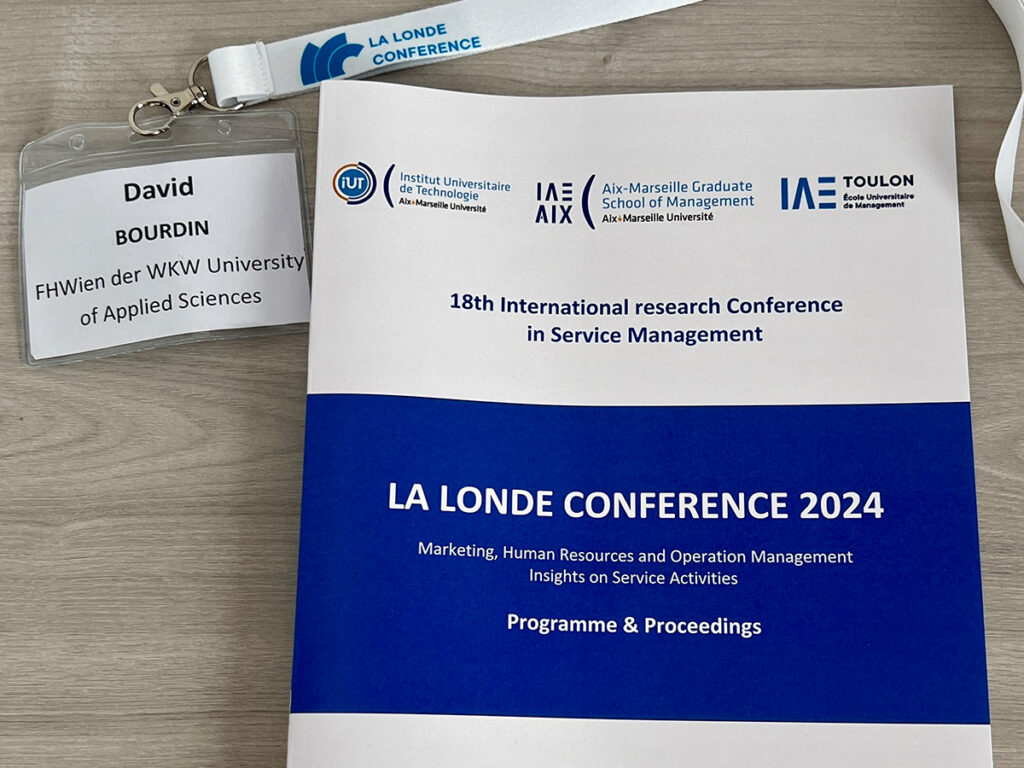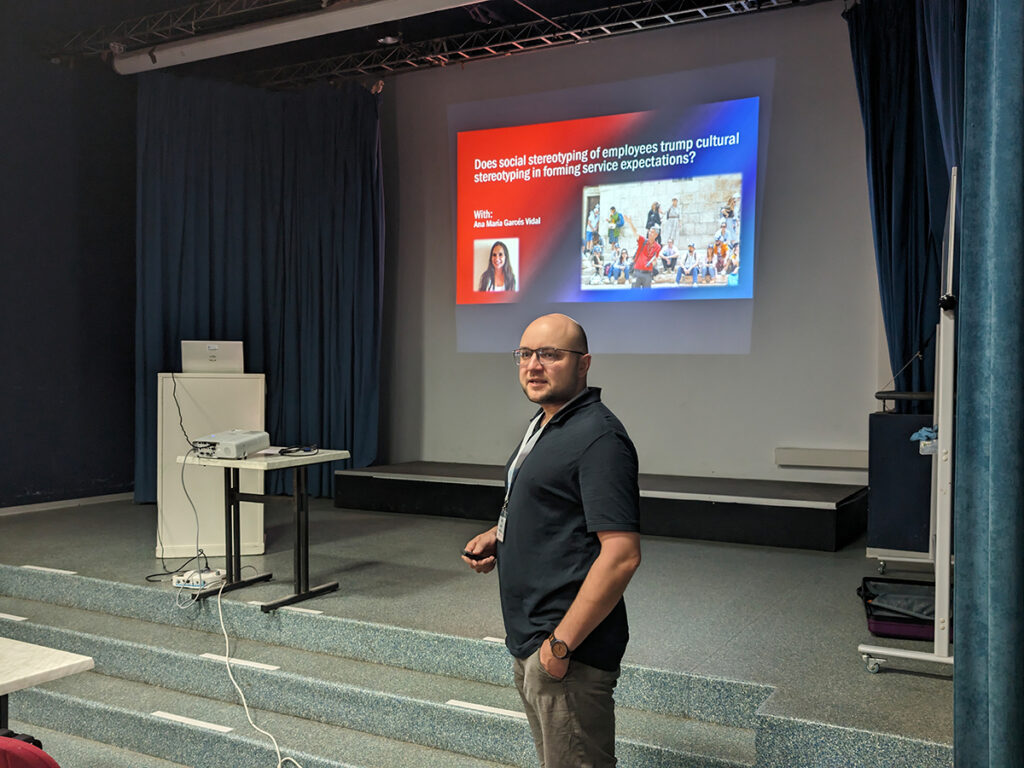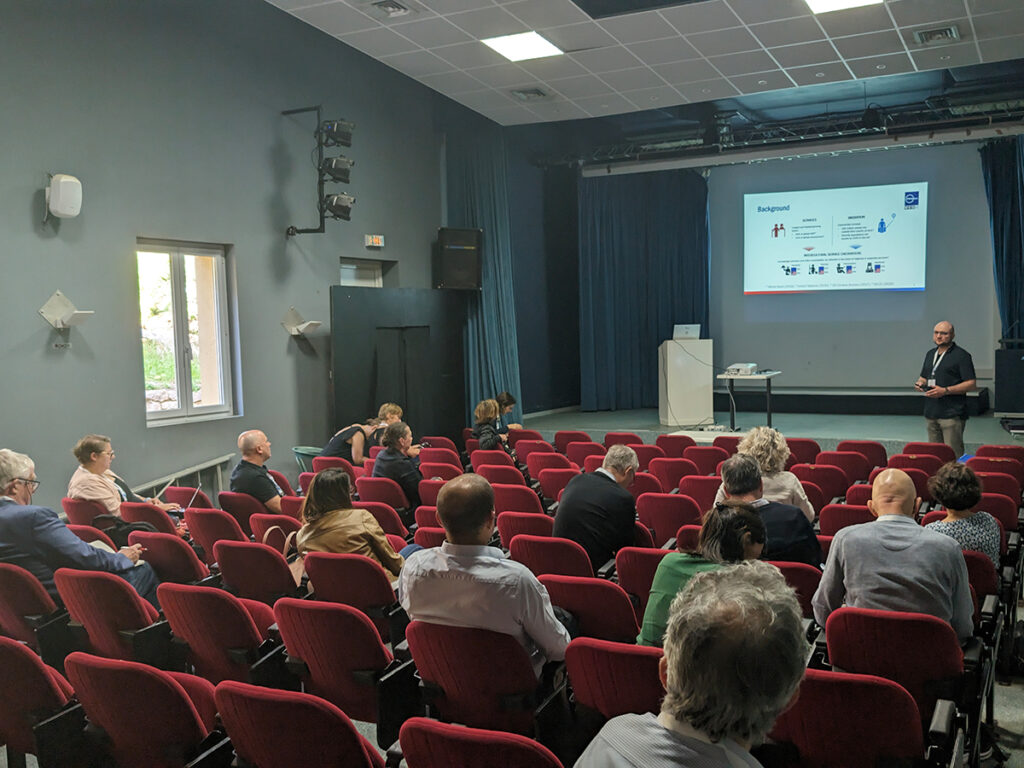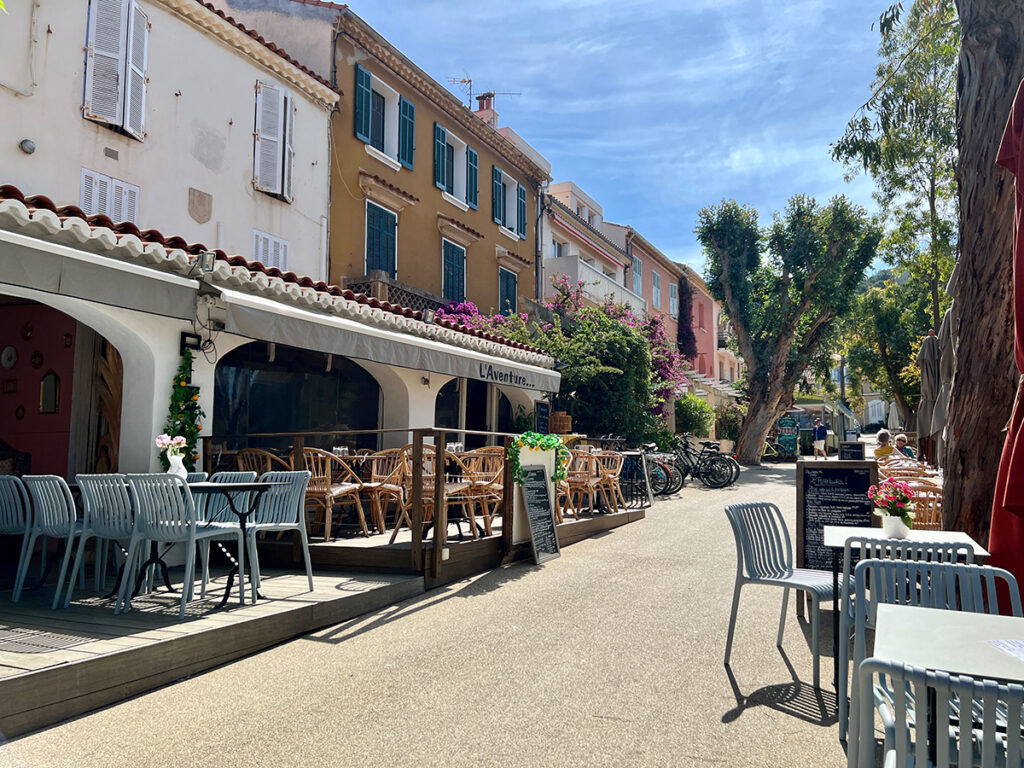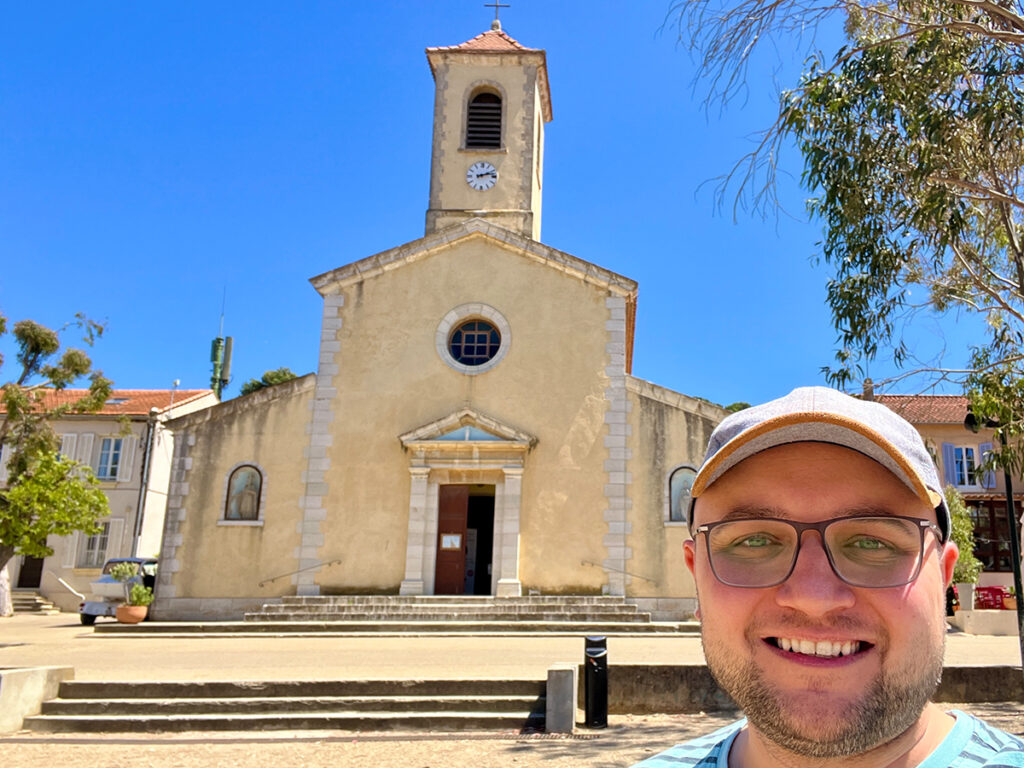David Bourdin, Senior Researcher in the Department of Communication at FHWien der WKW, presented his latest findings on stereotypical perceptions of service personnel with accents at the “La Londe International Research Conference in Service Management”.
David Bourdin is a senior researcher in the Department of Communication at FHWien der WKW. In his research, he has specialised in the perception of accent-based stereotypes among service personnel. His previous studies focussed on the perception of accents by consumers in intercultural service encounters in their home country (>> Journal of Service Research). He has now expanded the field of research and recently conducted a study under different conditions with his co-author Ana María Garcés Vidal, who works in the tourism and hotel industry. This time, for the first time, the reactions of tourists who interact with employees who have either a native or a foreign accent in the local language of the host country when using services on holiday abroad were examined.
The two researchers made a distinction between situations in which the service employee’s foreign accent was either from the same or a different country of origin to that of the tourist. In addition, they examined the role played by the cultural openness of the tourists and the perceived cultural congruence between the accent and the service setting. David Bourdin presented the respective paper “Does social distance overshadow cultural proximity when judging employees abroad?’” at the La Londe International Research Conference in Service Management organized by University of Aix-Marseille in May.
Online study among Austrians and Mexicans
The researchers conducted an online study with 128 Austrians and 119 Mexicans. They asked the respondants to imagine that they were on holiday in the United States and to listen to one of six one-minute audio scenarios of a fictitious interaction with an employee. The factorial research design included two accents: American or Mexican English and three settings: airline, hotel or Mexican restaurant. The dependent variables and potential moderators were then collected in a questionnaire:
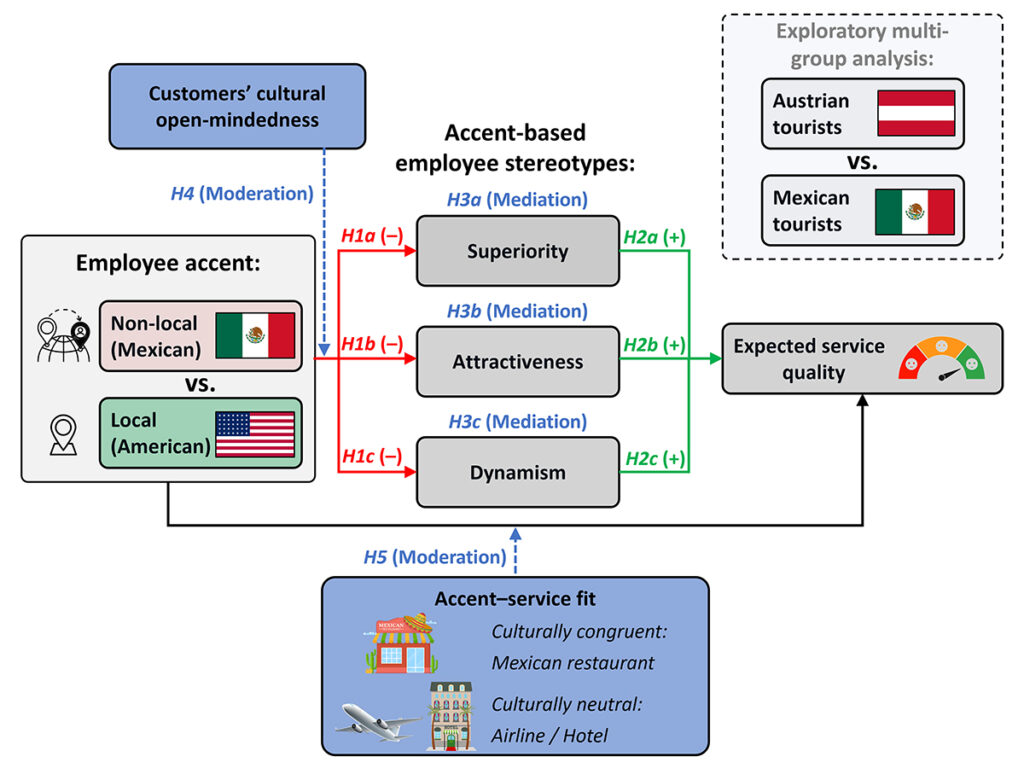
After the manipulation, checks showed that the experimental conditions were successfully implemented. The reliability, convergence validity and discriminant validity of the variables surveyed were ensured in a confirmatory factor analysis. The calculation of the hypothesis model provided the following exciting findings:
- Mexican tourists in the United States stereotype English-speaking employees with a Mexican (as opposed to native) accent more negatively. This contradicts the established theory of “in-group favouritism” and points to a conflict between social distance and cultural proximity in attitude formation. Wealthier Mexicans who can afford to travel abroad may look down on Mexican migrants with lower professional qualifications and seek to psychologically distance themselves from them, even though they come from the same country.
- Interestingly, despite these prejudices Mexican travellers have against Mexican-born employees in the United States, they still expect to receive a better quality of service. While they may attribute a lower work ethic to these employees, they still expect them to ‘go the extra mile’ because of their shared country of birth and put in more effort due to a certain sense of connection.
- A breakdown of accent-based stereotypes into different dimensions shows that employees with a Mexican accent are perceived as less dynamic by both Mexican and Austrian tourists, but this does not translate into lower service expectations (in contrast to ability and likeability, which are seen as a prerequisite for satisfactory service performance). This insignificant role of dynamism is counter-intuitive, as traits such as proactivity and self-confidence are usually associated with motivated and customer-orientated employees. However, dynamism as a personal trait may be a double-edged sword with ambivalent connotations and there is a tipping point at which “too much” dynamism is perceived as intrusive, artificial or excessive.
- Among Austrian tourists, cultural openness leads to employees with a native accent and a Mexican accent being perceived as similarly attractive, while less open-minded travellers tend to judge service staff of Mexican origin less favourably.
- A fit between employee accent and service setting (e.g. Mexican accent in a Mexican restaurant in the United States) makes an otherwise neutrally perceived or even stigmatized accent desirable, as it enhances the authenticity of the service experience.
In order to confirm these preliminary results and rule out alternative psychological explanatory mechanisms, further laboratory and field experiments are planned before a publication in a peer-reviewed journal can be sought.
The 18th La Londe International Research Conference in Service Management, organised by the University of Aix-Marseille, took place from May 20 to 23, 2024 on the French Mediterranean island of Porquerolles and attracted around 60 international participants. Thanks to David Bourdin for the numerous photos!
